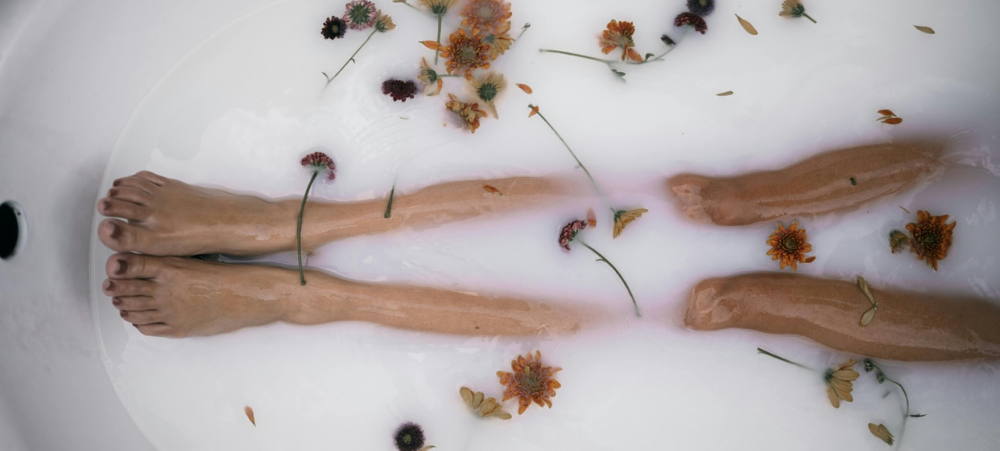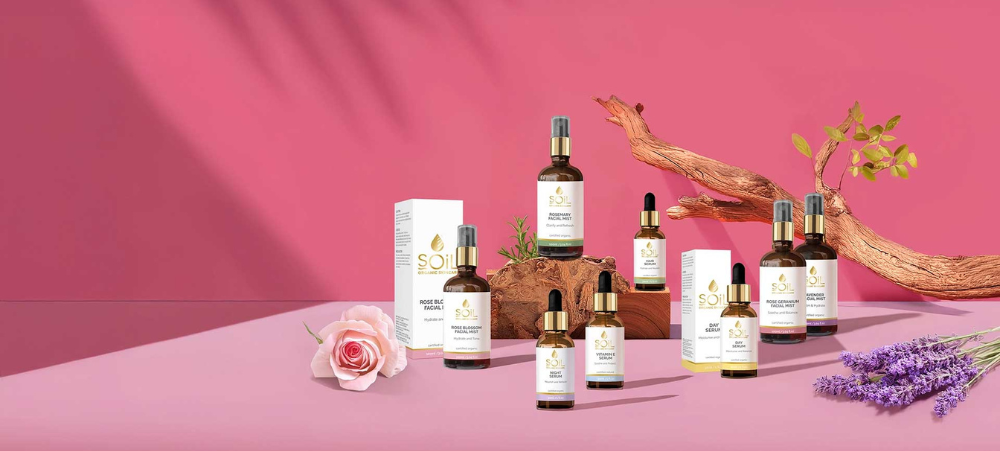We have access to a wealth of skincare information, but despite the vast amount of knowledge out there, there are still a lot of skincare myths that are commonly believed to be true.
Dr Judey Pretorius, a biomedical scientist and founder of skincare brand Biomedical Emporium, debunks six of the most common skincare myths that continue to do the rounds:
Myth 1: There’s no need for sunscreen during autumn and winter
Many people think that you only need to apply SPF during the warmer months, and that it’s only really necessary when spending prolonged time outdoors. The truth is that you should apply SPF every day, regardless of the season. UVA rays (the rays that cause the skin to burn) may not be that strong during the colder months, but UVB rays (the rays that cause hyperpigmentation, wrinkles and fine lines) are present all year round, and pose risks to your skin at any given time. UV rays can penetrate clouds, meaning your skin is at risk even on an overcast day.
Myth 2: You don’t need retinol until your later years
Retinol (vitamin A) is the holy grail of skincare ingredients. This powerful ingredient has the ability to increase the skin’s collagen production, increase the rate at which the skin’s cells turn over, treat and prevent acne, blackheads and breakouts and minimise fine lines and wrinkles. The saying “prevention is better than cure” rings true – delaying the onset of wrinkles and other signs of ageing is much easier than minimizing existing ones. It is ideal to introduce retinol to your regime in your mid-20s to delay the formation of fine lines and wrinkles. Try: Biomedical Emporium Retinol Serum (R1134.00). It reduces hyperpigmentation, soothes and protects skin cells against solar damage, slows down the destruction of skin proteins, builds new proteins, improves DNA health and protects against UV radiation assisting in the reduction of the signs of ageing.
Myth 3: Makeup makes skin age faster
Makeup itself does not cause skin to age faster – in fact – a lot of modern foundation formulas contain anti-ageing ingredients to complement your skincare regime. The only time that makeup may contribute to the ageing process is if you do not remove it properly, or go to bed wearing it. When you go to sleep without removing your makeup, it’s not just the makeup that stays on your skin – it’s also dirt, impurities and bacteria picked up during the day, and these have the ability to accelerate the ageing process. We recommend a “double cleanse” at night to ensure all makeup is removed. Begin your routine by removing your makeup with a good quality makeup remover like Biomedical Emporium Make-Up Remover (R610.00). Once your makeup is removed, cleanse your skin with a deep cleansing cleanser like Biomedical Emporium Facial Cleanser (R540.00), which deeply cleanses and gently removes impurities without disturbing the barrier integrity of the skin.
Myth 4: The harder you scrub, the better your exfoliation
When it comes to exfoliation, it is crucial to be gentle. If you’re exfoliating with a physical scrub, er on the side of caution and gently massage the product into the skin, in circular motions. Rubbing or scrubbing too hard will actually damage the skin. Plus, if you exfoliate too often you could strip the skin of its natural moisture. Less is more! We recommend using an enzymatic exfoliator once or twice per week. This is a enzymatic type of exfoliator that does not contain physical exfoliating beads and is thus a safer option. Try: Biomedical Emporium Enzymatic Therapy (R1128.00). This enzymatic exfoliator assists with the removal of dead skin cells without causing any harm or discomfort to the skin.
Myth 5: Wash your face with hot water to open your pores
While it’s true that steam helps open pores, you should never wash your face with hot water, period. Hot water might feel good, but it can damage skin by stripping it of its natural oils, drying it out and damaging its protective barrier. Lukewarm water is ideal. Not sure if the water is too warm? If your skin is red or flushed after rinsing, the water was too hot.
Myth 6: Oily skin doesn’t need to be moisturised
If your skin is oily you may be tempted to avoid moisturising in an attempt to control your skin’s oil production. The truth is that even oily skin requires moisturisation. Select a non-comedogenic moisturiser with a light texture that doesn’t feel heavy on the skin. A hyaluronic acid moisturiser is a great option for all skin types as it is naturally found in the body and helps the skin retain water, keeping it hydrated.
About Dr Judey Pretorius
Dr Judey Pretorius is a highly accomplished Biomedical Scientist and product development specialist with substantial experience in the disciplines of acute, chronic and post-surgical wound healing, regenerative medicine and cell therapy. She holds a Master’s degree in Genetics and Molecular Biology followed by her PhD degree in Pharmaceutical Chemistry, Medicine Development and Design. She has also obtained an Advanced Diploma in Dermal Aesthetics.
Dr Judey Pretorius gained extensive experience as a Research and Development Formulation Scientist. She was responsible for the Scientific and Biomedical formulation of therapeutic products of premium brands in respective disciplines. Her contributions included cosmeceutical, pharmaceutical and medical device developments.
She is the co-founder of Biomedical Emporium®, a biotechnology company specialising in the formulation of advanced biological products, cell culture processes and tissue engineering for advanced wound healing and an advisory on regenerative medicine. She has made unique formulation discoveries that have had a profound influence on the course of new developments in aesthetic and wound care treatment.
https://www.biomedicalemporium.com/
We understand that there are many aspects that encompass a Mother, Father or Child and strive toward providing resources and services that accommodates this.
Our content is aimed to inform and educate families on issues starting from pregnancy through to the challenges of the teen-age years.
- Say Hello to the Ultimate Holiday Brunch Bite - December 17, 2025
- Tiny Toons Looniversity Returns: Meet the Voice Behind Plucky and Hamton! - December 12, 2025
- From Pain to Possibility: Panado®’s New Marketing Campaign, Highlights The Joy Of Pain Relief - December 10, 2025





